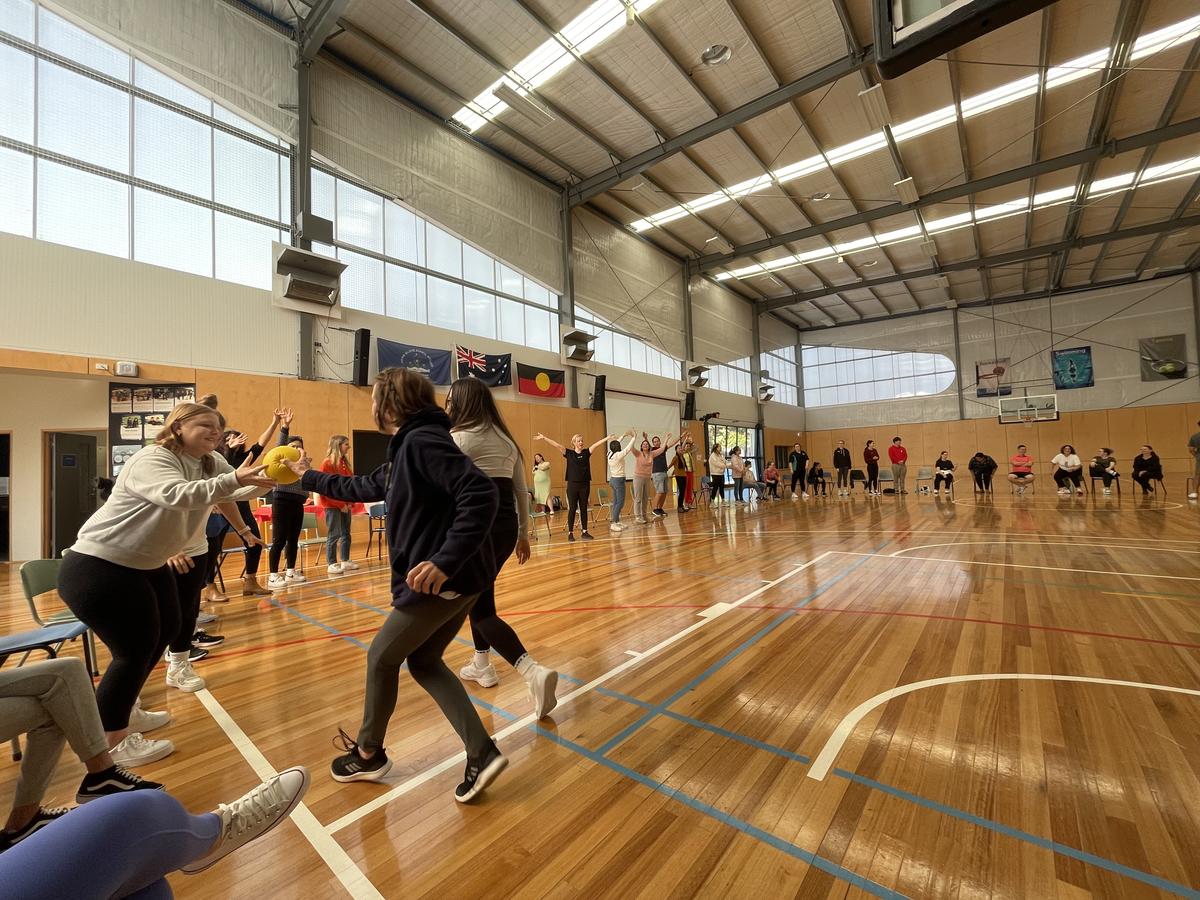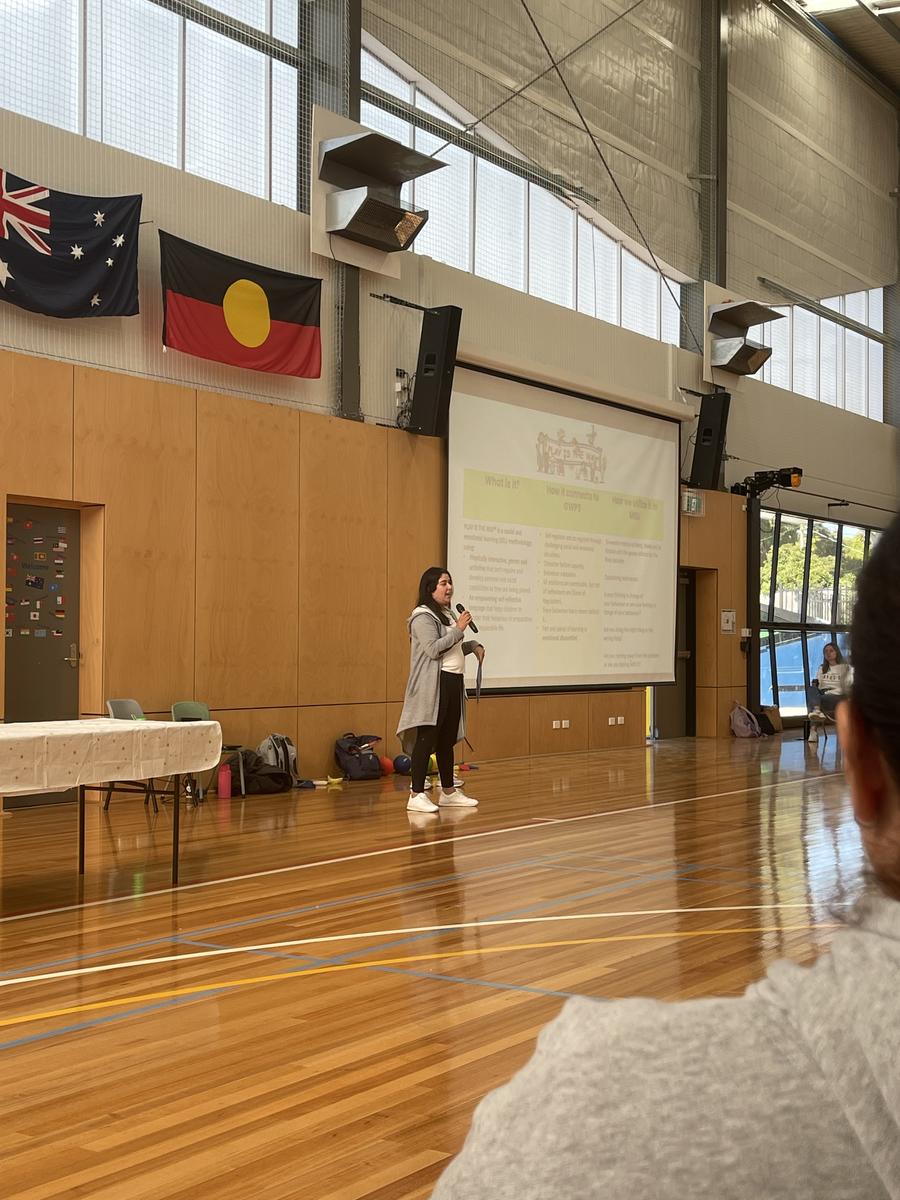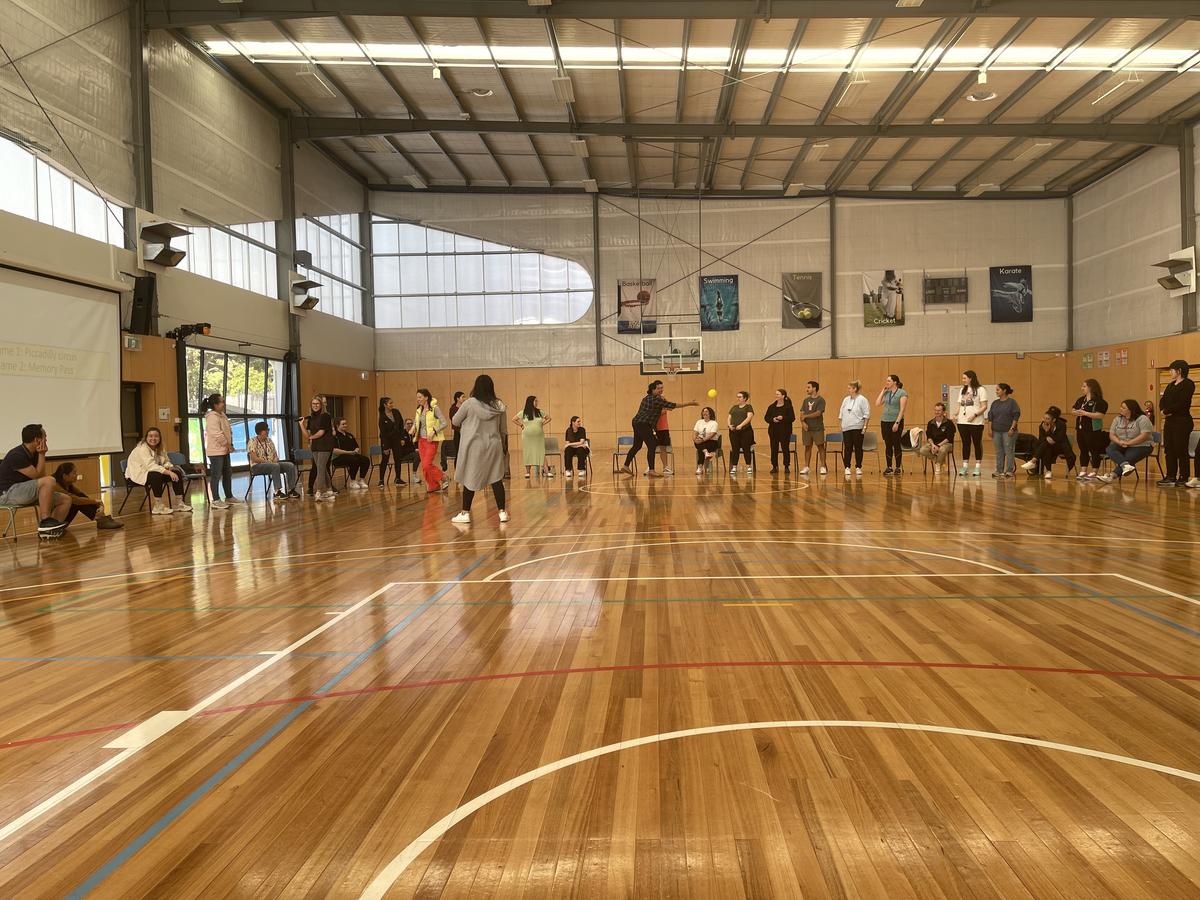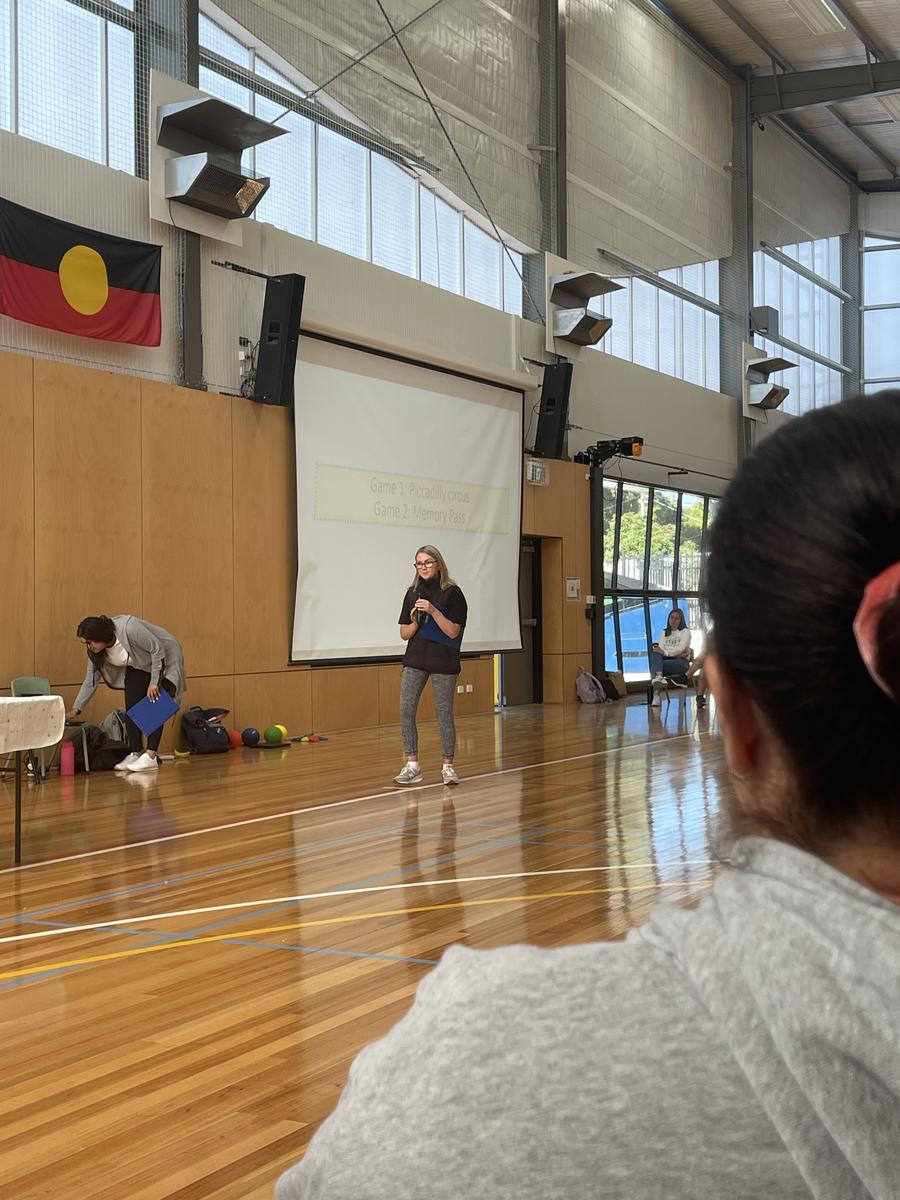Assistant Principal's Report
By Anat Garzberg-Grant

Assistant Principal's Report
By Anat Garzberg-Grant
What is It?
You may have heard your child mentioning ‘Mind, Body and Us’, whist at home. It has certainly captured the attention and hearts of our learners. Mind, Body and Us equips our students with strategies to enhance their wellbeing, focusing on their mental, physical and social selves. This approach to learning enhances academic learning, is research based and data centred. Mrs Alana Essa and Ms Monique Kelly teach students strategies to self-regulate and co-regulate through challenging social end emotional situations, delve deeply into their personal selves, teach behaviour as a form of communication, the Zones of Regulation and working through emotional discomfort.








What does Mind Body and Us Translate to?
Mind – Mental wellbeingBody – Physical WellbeingUs- Social Wellbeing
Students are taught strategies from Mind, Body and Us over a three week rotation period.
After a term of being engrossed in this learning - What do our students have to say about their learning experiences so far?
My favourite thing about Prep is ‘Mind, Body and Us’- Neili (Prep C)
‘Building Staff Capacity is Paramount’
On Monday the 24th of April, the Glen Waverley Primary School staff team invested their focus into an investigation of our newest specialist subject ‘Mind, Body and Us (MBU).’ In particular, we explored the ‘Body’ component through structured play drawing from the program ‘Play is the Way’. Yes, our staff played physical learning games! Mrs Essa and Ms Kelly led us through:
Our Staff played the game Piccadilly Circus which centered around communication, peer pressure and strategic thinking, and Memory Tag which focused on recall and short-term memory, which research has shown can improve behaviour. This is because the brain is like a muscle and can be worked on – just like going to the gym can strengthen other muscles in the body.
What did some of our staff take away from this?
“I took away valuable games to play with my class and found that after really working on improving the ‘us’ aspect we have improved the art of negotiation in my class.”
“I thought Memory Tag was really amazing – great for bonding and tuning the children into strategic thinking right before a learning task to get that part of the brain warmed up.”
“The games helped me to put myself in the shoes of my students and it’s helped me to understand their learning behaviours better and adjust my teaching delivery to better support their needs.”
“I liked physically competing in the games just like the students would, it gave me an insight into what the thought processes of the students could be, which gave me a good teaching focus for my innovation classes.”
“I loved the opportunity to play and really get into it as a group. This has helped me to plan more engaging mini lessons through gamification and really engage students and their strategic thinking into the art space.”